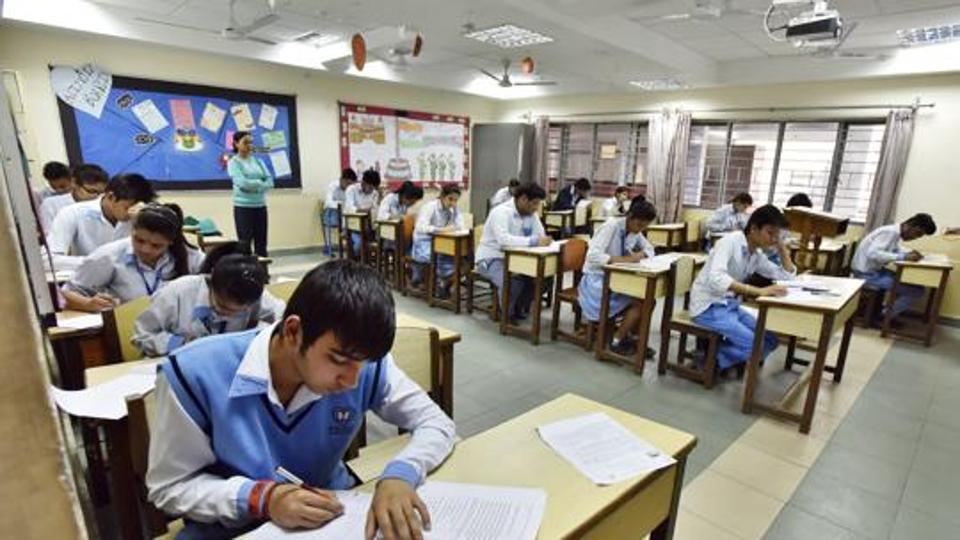
Inflated marks appear set to go from this academic year with the Central Board of Secondary Education (CBSE) preparing to remove a clause in its marking system, or moderation policy, which spikes its Class 12 results.
The CBSE examination committee will meet later this week to consider doing away with the clause in the policy that the board adopts before declaring results of the school finals.
“We want to ensure true marks of students are reflected in the board exams and to maintain the pass parity, marks of students are moderated. This is unfair on those who work hard as moderation is not applicable if a student gets 95 marks or above,” a senior board official said.
The governing body meeting on June 29 will further take up the issue.
The clause allows the CBSE to maintain “a near parity of pass percentage of candidates in the current year vis-a-vis preceding years, subject-wise and overall”.
It because of this clause that the board results have shown near-parity in terms of pass percentage: 82% in 2015, 83.05% in 2016 and 82.02% in 2017.
The government is inclined to nix the policy, in view of students scoring 100% marks.
“Generous distribution of marks will stop soon. I will stop such bad practices in the field of education,” said Union human resource development minister Prakash Javadekar in Pune on Saturday evening.
“Students have to work hard to earn marks. It isn’t possible that everyone scores 100 out of 100 in all subjects. There should be some restrictions while awarding marks.”
Such high scores trigger abnormally high cut-offs — sometimes touching 100% — for subjects such as mathematics and history during admission to sought-after colleges, especially in Delhi University.
Adopted in 1992, the moderation policy allows the country’s biggest school board to give students extra marks. But some state boards used the system to increase marks of their students, spiking the overall pass percentage and, thereby, triggering widespread resentment.
States such as Haryana, Himachal Pradesh, Maharashtra and Bihar don’t have a moderation policy. But others, including Goa, Tamil Nadu and Uttarakhand, use the policy to improve their pass percentage.
The CBSE, which has over 18,000 schools affiliated to it, decided to do away with this marking system this April but the Delhi high court asked it to continue this year.
The board follows three different sets of papers: one for Delhi, another for the rest of India, and the a third for foreign countries. It is planning to have a single paper.
This will reduce the need to carry out moderation by the board, sources said.
The CBSE, under the moderation policy, levels up the mean achievements in the set-wise performance of the candidates, attributable to the difference in the difficulty level of different sets of question papers in the multiple-set scheme.
However, officials said the CBSE’s move will be futile unless all state boards decide to remove the spiking of marks by amending their rules and regulations.
“It will put CBSE students in a disadvantageous position. Complete parity should be maintained amongst all boards, including state boards,” a central board official said.
The contentious issue of revaluation that is pending in the high court is likely to be taken up in the governing body meeting.
“We have a completely democratic set up and there’s no harm in revisiting our decision,” said a CBSE source.
[“source-hindustantimes”]








